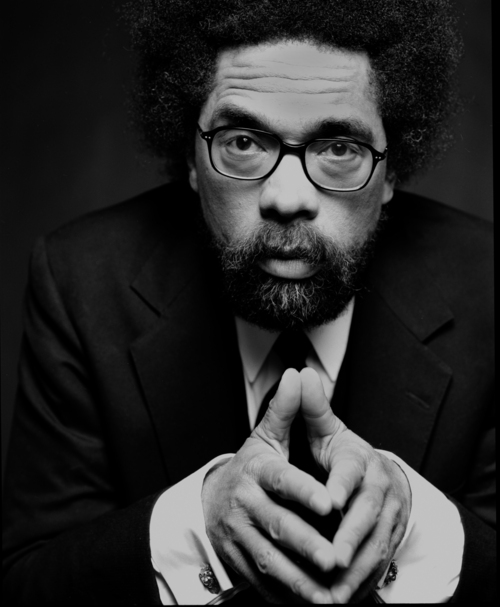
An Interview with Cornel West
Deep love is the chief motivator for demanding justice, according to Cornel West, a trailblazing philosopher, theologian and uncompromising activist who wields a fist for justice powered by an empathetic heart heavy with radical love for all his neighbors. Tim Keller, a theologian, like West, and the closest person the broad Christian sphere has to a spotless guru, once stated that misplaced love is the force behind all violence and destructive actions. James Baldwin, author of Another Country and The Fire Next Time, believes it is a “battle,” a “war” in which we are torn “limb from limb” in its name. Classic literature insists love is worthy of our death. Looking at our summer of widely publicized police brutality and harassment through the lens of love as motivator, it is clear the love of power and authority that corroborates superiority—once safeguarded by the guarantee of white skin’s historical reign, now verified by blue uniform’s proven invincibility—led a California Highway Patrol officer to pound Marlene Pinnock’s head into a highway median strip fifteen times. That same love clutched Eric Garner’s neck until he relinquished his last breath to a gum-crusted, spit-soaked Staten Island street. In Ferguson, Missouri, where Darren Wilson fired six rounds into Michael Brown’s reportedly surrendered body and ended an 18-year life with miles of unfulfilled triumphs and mistakes in its future, love pulled the trigger.
Love does not limit its influence to zealous law enforcement; it abounds throughout life’s public and private, astronomical and misdemeanor offenses. Hatred didn’t lead jihadists to hijack and steer commercial planes into New York’s two tallest buildings or ISIL operatives to behead kidnapped westerners; unconditional love for culture, religion and belief in its supreme truth did. Likewise, a love for religious supremacy leads fundamentalist Christians to terrorize the secular and coerce LGBT congregants into identity-destroying conversion therapy. Love of control and dominance drives an abuser’s fist into a victim’s face. This is not to disclaim hatred as an operative force guiding cruel offense. On the contrary, it is love’s ever-present calling card, a symptom of its existence. Hatred, the heart’s allergic reaction to that which threatens its reason to beat, is always poised to defend love’s honor.
On my walk back from police detainment with dozens of other protestors at 42nd Street and 9th Avenue in Manhattan on August 14, 2014, following the Day of Resistance protest that led thousands of us from Union Square to Midtown with a failed attempt to return via the same mode we came—the street, I thought of Cornel West. I’d witnessed raw love in the streets that night and throughout the week following Ferguson, Missouri protest livestreams. At the time, Twitter.com’s...
You have reached your article limit
Sign up for a digital subscription and continue reading all new issues, plus our entire archives, for just $1.50/month.
Already a subscriber? Sign in




